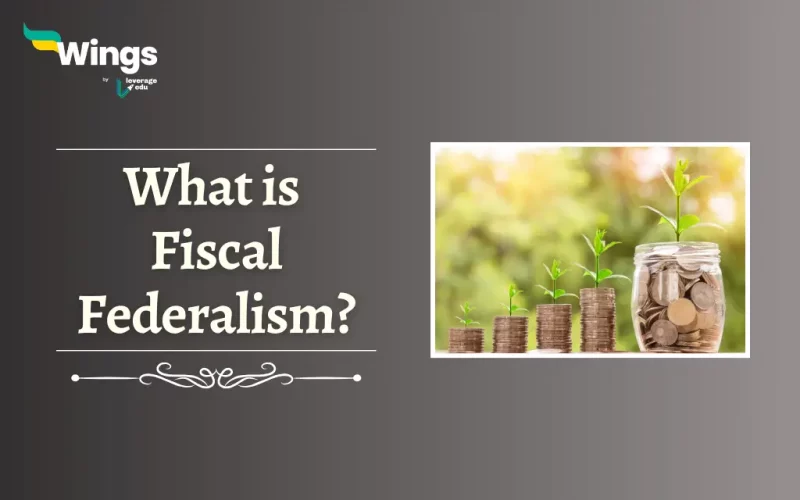Fiscal Federalism is the financial division of power and responsibilities between different levels of Government in a federal system. In simple terms, it is about who gets to decide how money is collected (through taxes) and how it is spent (on things like education, healthcare, infrastructure, etc.). Consequently, the goal is to achieve a balance between efficiency (providing services effectively) and equity (fair distribution of resources across regions). Furthermore, there are usually two main levels of government, the central or national government and the state or local governments. Thus, the idea is to strike a balance between these levels, so they can work together effectively without one overpowering the other. Read on to learn about Fiscal Federalism in India, and the Mechanisms to Achieve Fiscal Federalism.
Table of Contents [show]
What is Fiscal Federalism in India?
India’s federal system divides power between the Central government and State governments, with Local governments having some autonomy. Moreover, Fiscal Federalism in India focuses on how these levels share financial resources.
- Tax Sharing: The Indian Constitution allocates specific tax sources to each level (for example, income tax to the Central government and sales tax to States). There is also a mechanism for sharing certain taxes (such as Goods and Services Tax).
- Grants-in-Aid: The Central government offers grants to States for specific purposes (for example, rural development).
Thus, Fiscal Federalism in India aims to guarantee that States have sufficient funds to deliver essential services, especially those with lower tax bases.
Also Read: Devolution of Powers and Finances up to Local Levels
Mechanisms to Achieve Fiscal Federalism
Moreover, here are the Mechanisms to Achieve Fiscal Federalism in India:
- Constitutional Expenditure Powers and Assignment of Taxation: The Indian Constitution outlines the taxation and expenditure responsibilities among different levels of government. Hence specifying the roles of the Central and State governments.
- Goods and Services Tax (GST): The GST is an all-encompassing indirect tax that consolidates different Central and State taxes on goods and services.
- Furthermore, it is managed by the GST Council, which has representatives from both the Central and State governments.
- Finance Commission: Under Article 280, the Finance Commission is a constitutional body tasked with recommending the distribution of tax revenues between the Central and State governments.
- Additionally, it advises on ways to improve the financial resources of States, promote fiscal discipline, and guarantee fiscal stability.
- Grants-in-Aid System: Under Article 275, the grants-in-aid system allows the central government to transfer funds to State governments.
- Moreover, this happens for particular projects or schemes on a discretionary basis.
- In addition, these grants are intended to strengthen State resources and address regional imbalances and developmental needs.
Also Read: What is Doctrine of Pith and Substance?
Who Wrote Indian Fiscal Federalism?
Yaga Venugopal Reddy, a former governor of the RBI and G. Ram Reddy, an advisor on public finance, wrote Indian Fiscal Federalism. It was published on the 27th of December, 2018. The book uses the analogy of a game between the Central government and States to explain India’s complex dynamics of fiscal federalism. Furthermore, it dives into the historical perspective and the role of Finance Commissions in resource allocation.
Related Blogs
Lastly, we hope you liked our blog and gained an understanding of What is Fiscal Federalism in India. Moreover, you may even read more blogs and empower yourself with knowledge regarding Civics and Polity!
 One app for all your study abroad needs
One app for all your study abroad needs















 45,000+ students trusted us with their dreams. Take the first step today!
45,000+ students trusted us with their dreams. Take the first step today!
